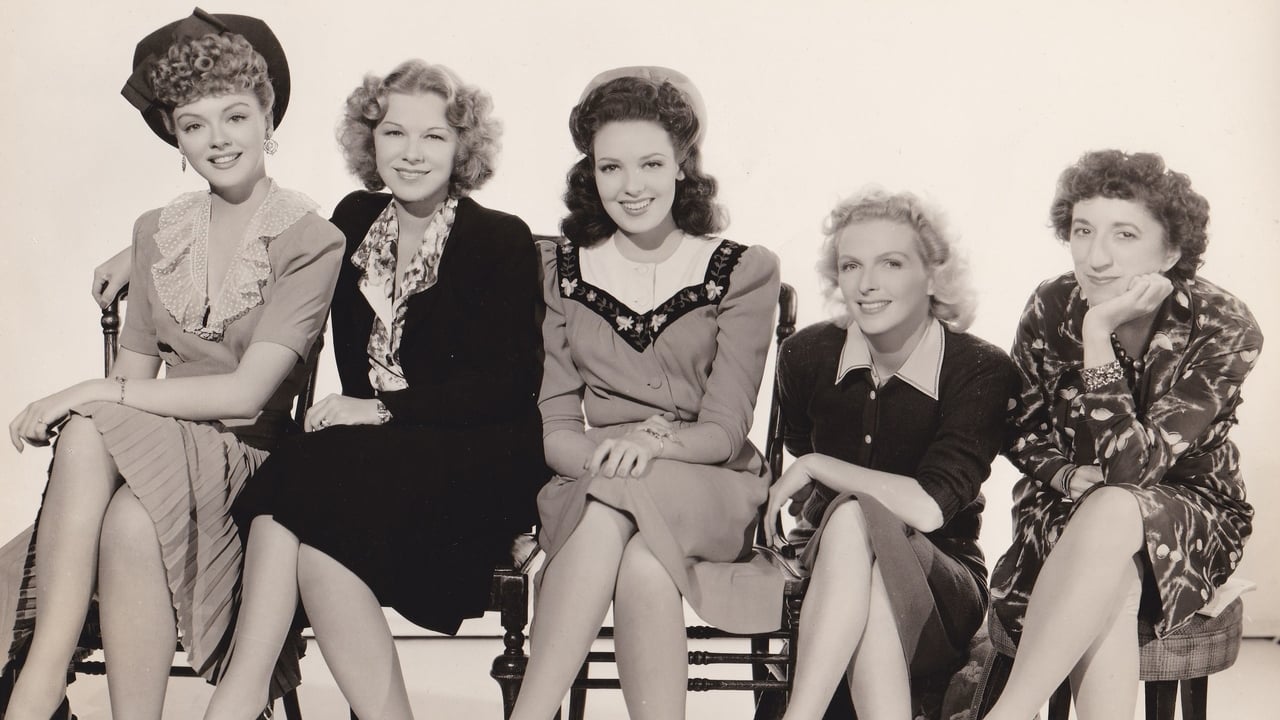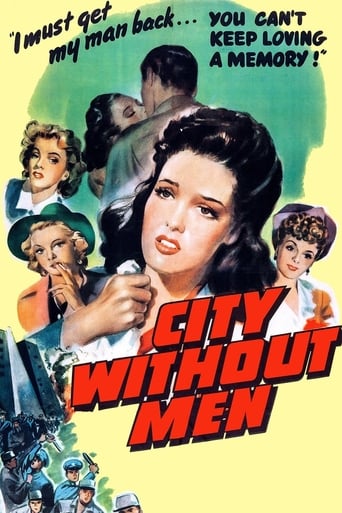

It's unfortunate that City Without Men could not have been made post WWII. Sadly a lot of very dated flag waving gets caught up in what could have been an interesting story.Michael Duane is a tugboat captain who gets caught with a couple of Nipponese gentlemen on his craft and is arrested. He gets five years in prison for stuff I think a smart lawyer could have beaten even war time.His fiancé Linda Darnell moves to a boardinghouse to be near him run by Sara Allgood whose husband is in the same prison doing a life sentence. Among other roomers it are Glenda Farrell and Margaret Hamilton. It looks a whole lot like the theatrical boardinghouse in Stage Door with all the personalities. But there's no eager hope for a career with these women, they're down and outers and they know it.Darnell has her hopes pinned on drunken attorney Edgar Buchanan and that's not much.This was a somewhat interesting story done of course on the cheap. It lost me however when Edgar Buchanan started waving the flag and drawing illusions to the occupation of Manchuria to Pearl Harbor with this man's case. Today's audiences would be howling in laughter.Sadly some real potential is lost in wartime flag waving.
... View MoreIn 1943, Linda Darnell was an up and coming star--destined to make quite a career for herself at Twentieth Century-Fox. However, as she hadn't yet had this big break, she appeared in smaller films--in this case a film for Columbia's B-unit. When you watch "City Without Men", it's pretty easy to tell that this wasn't a particularly distinguished film--with a plot that, at times, is VERY heavy-handed and even silly.The film begins with a new recruit for the US Navy getting pulled into the middle of a spy ring just before Pearl Harbor. Although he captures two evil Japanese spies, his superiors believe he was in league with them--and sentence him to five years in prison. His fiancée (Darnell) is determined to not only try to get him out, but she goes so far as to move into a rooming house near the prison. This place is full of other women whose men are behind bars (such as Sara Allgood and Glenda Farrell). Can she manage to get someone to look at her boyfriend's case and give him a second chance? The idea of the film isn't bad, but all the WWII jingoism is a bit hard to take. In particular, Edgar Buchanan makes a long speech about America, apple pie and the like and it just comes off as preachy and ridiculous. In fact, much of the film is pretty ridiculous--with silly one-dimensional characters and not much more. An odd film...and not a very good one.
... View MoreI am rating this film with a 6 out of 10 on the basis that if i *could* have heard the dialogue, it would have been a very satisfying B-Movie. As it is, the Alpha Video DVD release has incredibly BAD sound quality, rendering much of the speech incomprehensible and thus muddying up both the plot and the emotional impact of the work. I am generally a promoter and fan of the Alpha releases of Poverty Row movies, but the condition of the sound is beneath what anyone should be made to endure. Anyway, on the premise that somewhere there's a better print, i think i would like to see it again. Margaret Hamilton is outstanding as a piano playing card cheat, Edgar Buchanan is unexpected as an alcoholic lawyer, and Sara Allgood is tragic as a woman who has lost her husband to the prison system and loves him still. The film really belongs to the women, but the men do a credible job, especially Sheldon Leonard as a tough-guy inmate.
... View MorePicture quality on Alpha DVD release is terrible but garbled soundtrack is even worse. Almost like watching a primitive foreign-language talkie in a language not yet recognized. Basic situation--a boarding house full of girlfriends, wives, and mothers of convicts living across the street from a prison where their men are impounded--has possibilities (think "Stage Door" on visitors' day) but it's impossible to understand what Linda Darnell, Glenda Farrell, Margaret Hamilton (in change-of-pace role as a sassy beer-swilling card cheat), etc. are saying 80 percent of the time. (And what was Darnell doing in a Poverty Row clinker like this at this point in her career?) Odd little film with early David Raksin score, light years away from his "Laura" panache just a few years later.
... View More